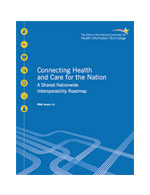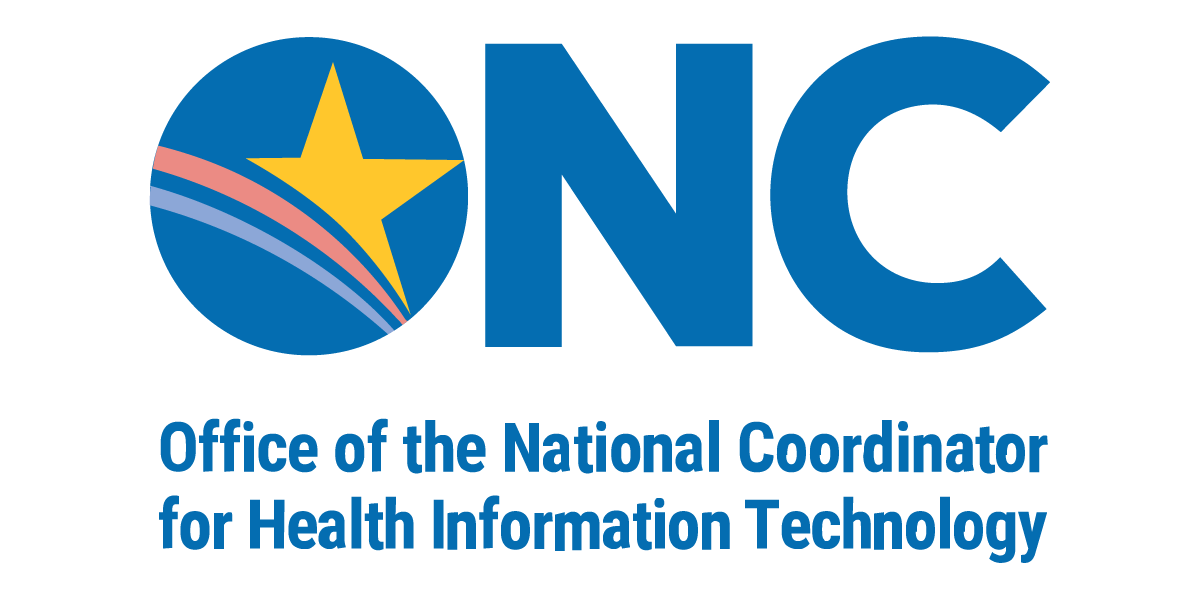 ONC accepted public comments on Connecting Health and Care for the Nation: A Shared Nationwide Interoperability Roadmap Draft Version 1.0. The comment period ended on April 3, 2015.
ONC accepted public comments on Connecting Health and Care for the Nation: A Shared Nationwide Interoperability Roadmap Draft Version 1.0. The comment period ended on April 3, 2015.
The draft Roadmap proposes critical actions that need to be taken by both private and public stakeholders to advance the nation towards a more connected, interoperable health IT infrastructure and was drafted by ONC based on input from private and public stakeholders. The draft Roadmap outlines the critical actions for different stakeholder groups necessary to help achieve an interoperable health IT ecosystem.



Interoperability Comments
Retired
I strongly urge you to vote against the proposed implementation of a National Medical Records System, an intrusive, non-secure storage and retrieval system designed to store and track the private medical data of US citizens, citizens who rightfully expect their personal information and effects to be secure from government inspection. I hold a Masters of Science in software engineering, and I guarantee that the database system you intend to build, regardless of your intentions for security, will be compromised. Unlawful access to the private medical information stored in the system will be achieved. There is no such thing as an absolutely secure networked system. Sufficiently motivated individuals, organizations, or governments -- including domestic political operatives -- will gain access to any or all information stored in the system. All of its data is vulnerable to being stolen or manipulated. It’s that simple.
Not only is the medical data of millions of individuals not secure, but the federal government has no constitutional right to collect that data in the first place. Citizens have a right to privacy. Whatever medical data can lawfully be collected should be controlled and managed by the states where citizens are better able to hold legislators accountable, and where local values are far more likely to hold sway when it comes to managing the system. As currently written, the National Medical Records System repeals current federal law which upholds states’ rights to enact their own medical privacy laws under HIPAA. Again, we citizens have a right to privacy, especially when it comes to our own private medical information.
Increasingly, the federal government and its bloated bureaucracies exercise a paternal view of US citizens, treating us as children instead of adults capable of self-governance. This National Medical Records System is a case in point, treating private patient data as public property to be used for whatever ends the government sees fit. We citizens are promised that this data will be used for the common good, but we citizens have been lied to too many times. Millions of us have lost our healthcare because of misguided federal legislators. We were not permitted to keep our own doctors. We are well aware that our electronically documented doctor-patient conversations, our medical tests and their results, and our current medical expenses are all available to anonymous bureaucrats whose intentions may or may not be harmless. Besides, the intentions of today’s bureaucrats will most certainly be different from the intentions of future bureaucrats.
In this new, Orwellian age of American government, it is necessary to remind federal representatives and senators that the purpose of a just government is to protect the individual rights of citizens. We are not a collective society; we are a democratic republic whose representation is being usurped by an increasingly administrative state whose functionaries are neither elected nor accountable to US citizens. The federal government has no business eavesdropping inside my doctor’s office or being at my hospital bedside. You can make all the promises you want about the built-in security to safeguard access and other protocols regarding my private medical data, but you are not being honest.
Wayne Johnson
Intel Corporation
Attached please find the comments of Intel Corporation.
2015-04-03_final_intel_onc_roadmap.pdfTo whom it may concern,
I am against Interoperability Roadmap.
I have many issues with EHRs and interoperability, privacy is one of them. Privacy is a person's right and this seems to be taken away with EHR interoperability. It allows nationwide access by innumerable people, which is unacceptable.
1. Proposes to repeal federal law that allows state legislatures to enact true medical privacy laws for citizens. The Roadmap proposes to undo state’s rights under HIPAA to enact state laws and conform all state laws to federal HIPAA “no privacy” rule. (p. 67)
2. Views patient data as public property rather than personal property: “Data holders … should ensure standards are prioritized, developed and implemented to support the public interest, national priorities and the rights of individuals.” (p. 33)
3. Links data without consent for government and research use: “As a learning health system evolves, more than individual/patient-specific information from health records will be matched and linked, including provider identities, system identities, and device identities and others to support public health and clinical research.” (p. 24)
The data sharing EHRs are a concern for all involved, practitioners and patients alike.
Signed,
Lydia Romero
Futures Without Violence
Futures Without Violence's comments are attached. We thank the ONC for the opportunity to comment.
final_interoperability_comments_4.3.15.doc